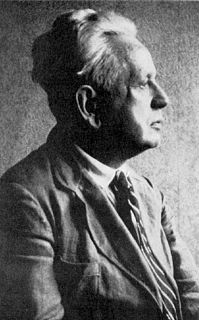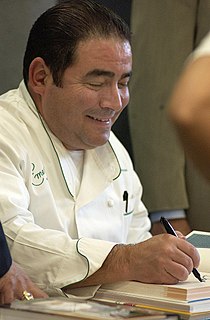A Quote by Steven Pressfield
In my experience, depth of work consists of two components. The first is recklessness; the second is discipline. Dionysian; Apollonian. Passion;reason.
Quote Topics
Related Quotes
For me there were only two ways on the precipice - either I have to fall in or I have to fall out, to accept or say good-bye. The moment I crossed the precipice, it no longer was a discipline - it became a passion, an urge to pursue. Then I experienced freedom. Freedom comes when the discipline revolutionizes the discipline as a passion for the art.
The third class consists of men to whom nothing seems great but reason. If force interests them, it is not in its exertion, but in that it has a reason and a law. For men of the first class, nature is a picture; for men of the second class, it is an opportunity; for men of the third class, it is a cosmos, so admirable, that to penetrate to its ways seems to them the only thing that makes life worth living. These are the men whom we see possessed by a passion to learn.
There is a conceptual depth as well as a purely visual depth. The first is discovered by science; the second is revealed in art. The first aids us in understanding the reasons of things; the second in seeing their forms. In science we try to trace phenomena back to their first causes, and to general laws and principles. In art we are absorbed in their immediate appearance, and we enjoy this appearance to the fullest extent in all its richness and variety. Here we are not concerned with the uniformity of laws but with the multiformity and diversity of intuitions.
In most ecological systems you have a composite, biotic components as well as abiotic components acting together to form a whole, whereas in a human built environment most of the components are abiotic or they are inorganic. One of the first things we need to do is to complement the inorganic components with more organic components, and to make them interact to form a whole.
As Harvard developmental psychologist Robert Kegan, who has studied Bridgewater, says, in most work places everyone is working two jobs. The first is whatever their actual job is; the second consists of managing others' impressions of them, especially by hiding weaknesses and inadequacies - which is an enormous waste of energy.
What gives life meaning is a form of rebellion, rebellion against reason, an insistence on believing passionately what we cannot believe rationally. The meaning of life is to be found in passion—romantic passion, religious passion, passion for work and for play, passionate commitments in the face of what reason knows to be meaningless.
The country and culture commonly known as "America" had had a badly split personality all through its history. Its overt laws were almost always puritanical for a people whose covert behavior tended to be Rabelaisian; its major religions were all Apollonian in varying degrees---its religious revivals were often hysterical in a fashion almost Dionysian.
If my forward arrives in a one vs one situation, I always say: 'let him work it out.' Then my players say: But we can help him!'. My reply is: First, there's a good chance you'll only run in his way, and as a second attacker you're drawing a second defender with you, and two vs two is harder than one vs one.'
[As a kid] I felt it was really weird that music schools behaved like a conveyor belt to make performers for those symphony orchestras. If you were really good and practiced your violin for a few hours a day for ten years you might be invited to this VIP elite club. For me music was not about that. It is about freedom and expression and individuality and impulsiveness and spontaneity. It wasn't so Apollonian; it was more Dionysian.


































